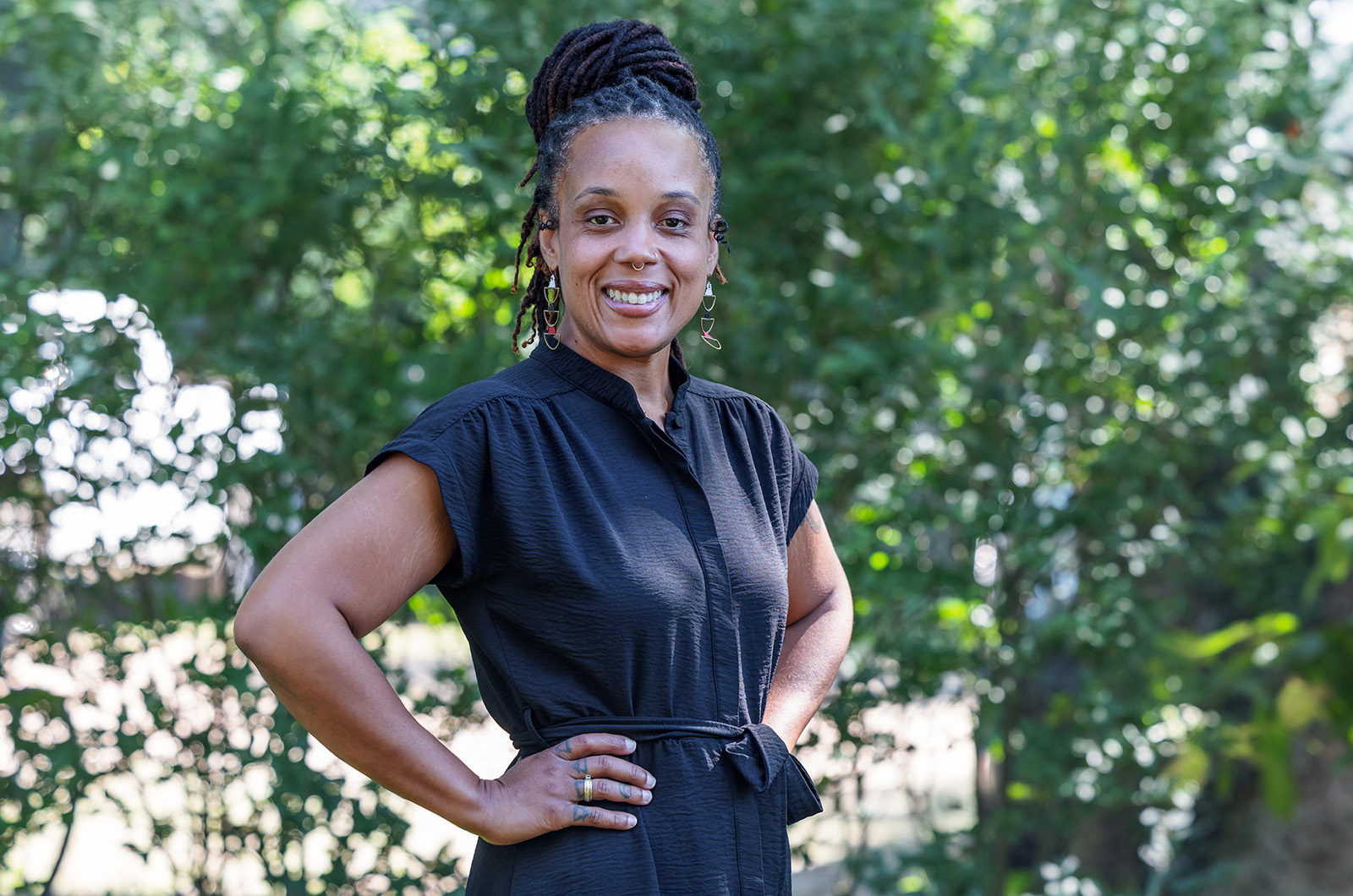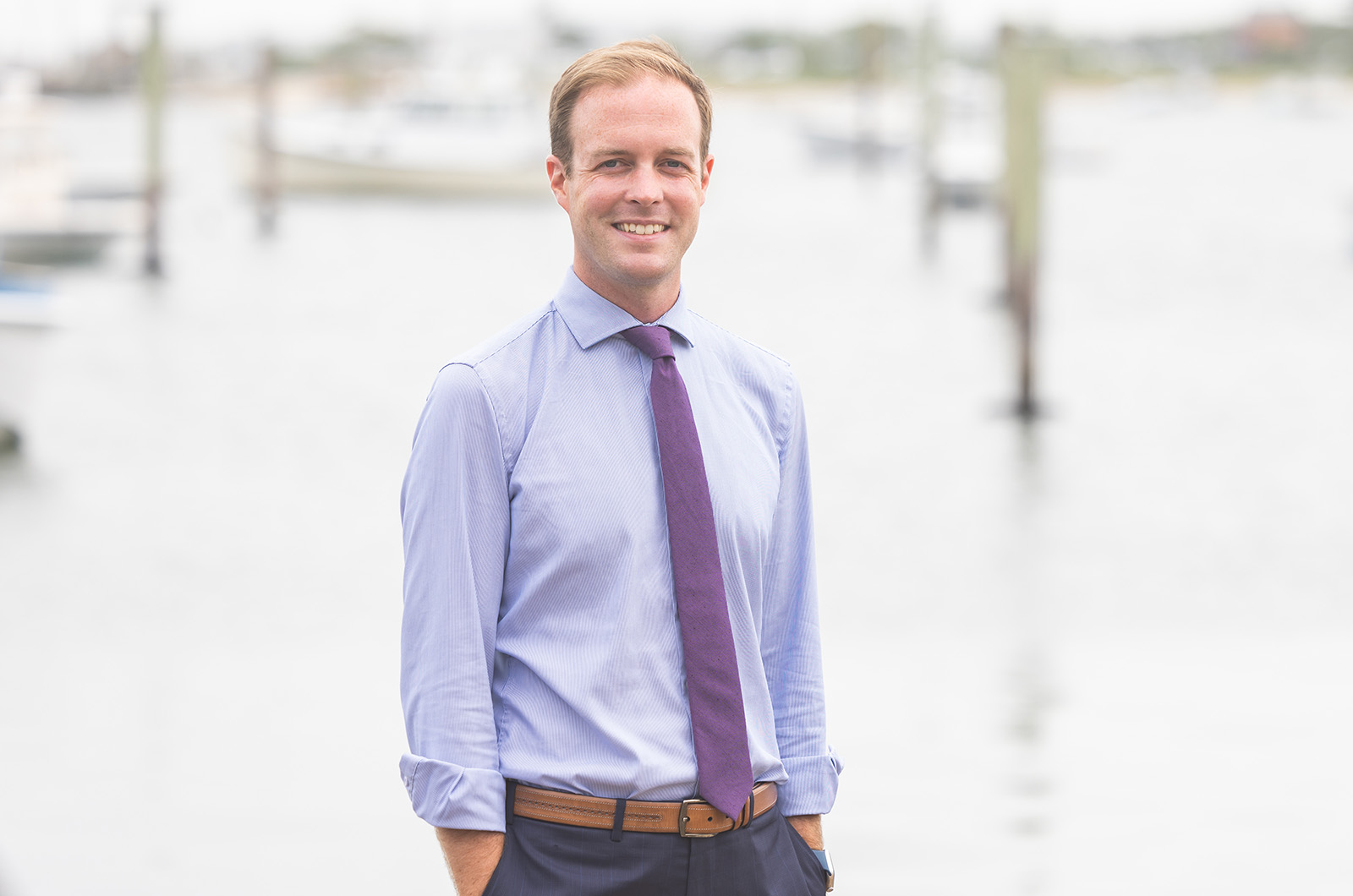Democrats on the Vineyard, Nantucket and parts of Falmouth will head to the polls on Sept. 3 to cast their primary ballots for the region’s new state representative.
The position, which is being vacated by the outgoing state Rep. Dylan Fernandes, is being contested by Islander Arielle Faria and Falmouth attorney Thomas Moakley.
Both candidates said that housing is among the most pressing issues, along with the environment.
With no Republican candidate running for the seat, the winner of the primary will almost certainly be the Island’s next representative. The candidates sat down with the Gazette this week to discuss their experience, political priorities and what motivated them to take this step forward in public service.
Arielle Faria
West Tisbury resident Arielle Faria is running for the House seat from her position as a project manager at the Island Housing Trust. As an activist, she said she has prioritized bringing affordable, sustainable housing to the Island, a mission she promised to continue leading at the State House.
Ms. Faria’s family has been visiting the Island since the 1960s, when they first bought a house in Oak Bluffs.
“I loved coming here as a child,” Ms. Faria said. “It was always a breath of fresh air, and also a place where I didn’t feel like I was different from everyone else.”
When she began a remote graphic design and marketing business in 2009, she decided to move to the Island full time.
Since arriving on the Island, Ms. Faria has served on the boards of multiple local nonprofits, including the Martha’s Vineyard Hospital and the Martha’s Vineyard Community Foundation.
“I understand, personally, what it’s like to struggle in this region and work and be working full time, if not beyond, to feed my family,” she said. “If it wasn’t for the fact that I was chosen in an affordable housing lottery, I wouldn’t be doing the work that I’m doing now.”
From her role as an activist and working for the Island Housing Trust, Ms Faria has been one of the Island’s leading housing advocates, she said. She has also worked with legislators to draft housing legislation, she added.
“I’ve always been concerned and active in my communities, wherever I have been,” Ms. Faria said.
“You can literally Google my name and you will see all of the work that I have done because of my dedication to this region,” she added.
Housing is the bedrock of Island life, Ms. Faria said.
“Everyone needs housing, and if we don’t have people, we don’t have community,” she said.
At the policy level, Ms. Faria continues to support a transfer fee tax put before the Massachusetts State Legislature last year, which would apportion a percentage of high-value real estate sales for local affordable housing projects. Ms. Faria advocates for a “local option” that would give individual towns across the commonwealth the right to institute the tax.
“We just want the option,” Ms. Faria said. “I believe that option should be in the hands of voters and not in the hands of lobbyists.”
Ms. Faria also believes that updating the state’s “outdated” zoning and wastewater laws could make it easier to build housing in the district.
“There are so many things happening around the world that are successful and not nearly as expensive as expanding our sewer infrastructure,” Ms. Faria said. “I believe that if we are able to adopt some of these new and innovative programs, we will be successful in becoming a more sustainable and self-sustaining community.”
Ms. Faria listed ferry service and climate change as further political priorities.
“The Islands clearly are concerned about ferry service,” Ms. Faria said.
She said that to address labor concerns with the Steamship Authority, she was working on “a draft policy around having diversity among... union contracts with the Steamship Authority” that would allow the Steamship to “negotiate properly” and evaluate multiple potential contracts.
“It’s not that I don’t want the Teamsters. That’s not it. I very much am in favor of unions doing the work that they do to get what the workers deserve,” Ms. Faria said. “It’s just like having Comcast be the only option here. You don’t have the option to shop around. You don’t have the option to have different types of services. We have to make sure we have the ability to procure the help that we need.”
Steamship Authority management is required by law to negotiate with the Teamsters Union Local 59, which has been selected by and represents all Steamship employees.
Ms. Faria added that she would like to see improved communication between Steamship officials and Island towns in light of frequent and unexpected delays and cancellations at the ferry.
On climate, Ms. Faria said that the district “needs self-sustaining resources that do not negatively impact our environment” and that the “intention” behind offshore wind farms “is definitely positive.”
However, in light of the recent turbine break at Vineyard Wind, she said that “we should not be afraid to switch our plan if things are not going the way they should be.”
“Our ocean and our health are really important to this community. Without keeping our oceans clean and safe, we have no livelihood,” Ms. Faria said. “We have to bring everyone to the table to weigh the benefits and the negatives of wind power.”
Ms. Faria has been endorsed by Planned Parenthood of Massachusetts and SEIU locals 1199 and 509, both of which represent health care workers. Juli Vanderhoop, a select board member of Aquinnah and elder of the Wampanoag Tribe of Gay Head (Aquinnah), is among the local officials who have endorsed Ms. Faria.
Thomas Moakley
Thomas Moakley, born, raised and living in Falmouth, is running for state representative after serving two years as the Cape and Islands assistant district attorney (ADA) for Martha’s Vineyard.
“I love this area that I was fortunate enough to grow up in, and I think that I have the knowledge and the experience to give back in a meaningful way,” Mr. Moakley said.
That affection spans Falmouth as well as the Islands he would serve as state representative, he said, which he has come to know in his role as ADA.
“I’ve been coming [to the Island] from Falmouth for my whole life, but coming every day as the assistant DA really brought it to the next level,” Mr. Moakley said.
Mr. Moakley earned a law degree from Suffolk University, attending school at night while working at the Suffolk County District Attorney’s office, he said.
After receiving his degree, he returned home to Falmouth, where he was appointed assistant district for the Island.
Mr. Moakley said he has three leading priorities as a candidate: climate change, affordability and women’s reproductive health. The high cost of housing drives nearly all the challenges of living in the district, Mr. Moakley said.
At the policy level, Mr. Moakley continues to support the transfer fee tax, which would apportion a percentage of all high-value real estate sales for local affordable housing projects. He said the transfer fee tax would be “critical to recapturing some of the year-round [rental] stock” on the Cape and Islands.
A version of the transfer fee tax was proposed in early drafts of a recent housing bill on Beacon Hill, but was cut out of the final bill.
Mr. Moakley said that as state representative, he would support “home rule petitions” that would allow Island towns to institute the transfer fee, without giving all other municipalities across the commonwealth the same “local option.” The local option proposed by Gov. Maura Healey garnered significant political opposition on Beacon Hill.
“It’s one of the core responsibilities of the state representative for this district to shepherd municipal home rule petitions through the legislature,” Mr. Moakley said.
“I think the strategy going forward is to say, look, even if you don’t want to enable this statewide, let us do it and then let us prove you wrong, or you can prove us wrong,” Mr. Moakley added.
Mr. Moakley also supports a tax credit for landlords who offer year-round rather than seasonal or short-term rentals, and would support tax-exempt saving accounts that would “make it easier for first time homebuyers” to establish a permanent base on the Island.
Mr. Moakley also raised several ideas related to climate resiliency.
He said he would push for the construction of “microgrids” and further investments in battery technology within the district, to help get the Martha’s Vineyard Commission to its goal of net-zero carbon emissions by 2030.
Together, microgrids and advanced batteries would stabilize energy access in the case of severe weather or other disruptions, and would grant the Vineyard more control over where it draws its energy from, Mr. Moakley said.
Mr. Moakley said that investing in renewable resources went hand-in-hand with promoting affordability in housing and local development.
“Sustainability is directly related to affordability.... It’s all about having a vision of this sort of community we want to be in the future, one that has a more robust and conscientious year-round population,” Mr. Moakley said.
“So taking more of an active role in deciding what our communities look like, rather than just letting the money decide is going to go towards sustainability, much better than just letting the market run wild,” he added.
Mr. Moakley said that although he had concerns about the recent turbine break at Vineyard Wind, offshore wind development has had a positive impact on the district. He emphasized that continuing to promote renewable energy development while holding offshore wind developers accountable would be a priority at the State House.
“I think, as I said, it’s net-positive,” he said. “We need to move forward with accountability and with transparency.”
To support reproductive rights, Mr. Moakley said he would push for an amendment to the state constitution that would guarantee access to abortion and reproductive healthcare in the commonwealth.
Mr. Moakley said that as the Island’s assistant district attorney, his list of political priorities have grown to include strengthening local courts’ access to interpreter services for the local Portuguese-speaking population, and advocating for specialty courts such as the Island’s new recovery court, which he helped assemble. Mr. Moakley said that he advocated for “more resources to be coming from the main office in Barnstable, including new offices, new staff.” He also built experience working in local government, which his opponent lacks, he said.
In his free time, Mr. Moakley is an avid participant in community theatre, most recently playing the butler in a Falmouth production of Clue.
Mr. Moakley has been endorsed by the outgoing state representative, Dylan Fernandes, a fellow Falmouth native, as well as NAGE/SEIU Local 5000, which represents local government workers, the LGBTQ+ Victory Fund and the Cape and Islands district attorney Robert Galibois.









Comments
Comment policy »